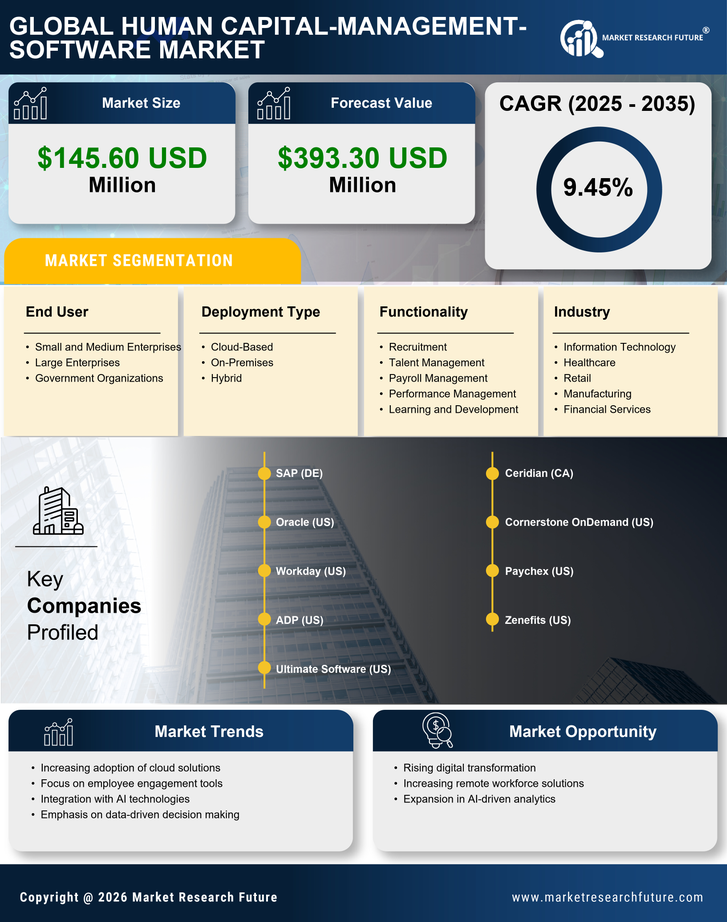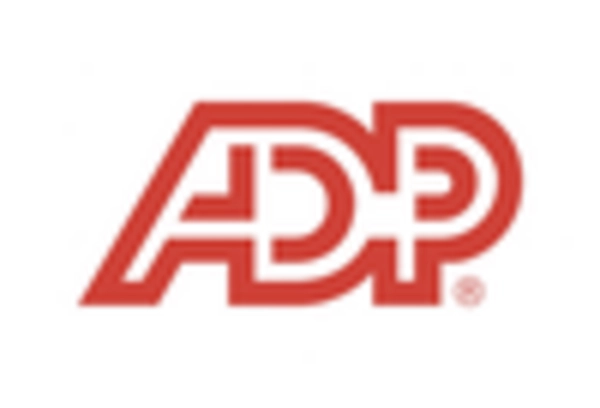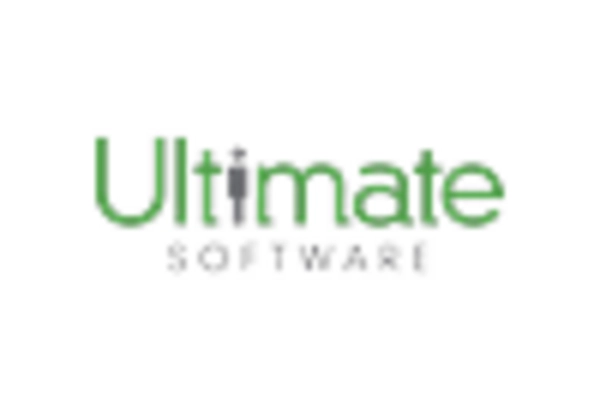Shift Towards Remote Work Solutions
The rise of remote work arrangements in Indonesia is reshaping the human capital-management-software market. Organizations are increasingly adopting software solutions that facilitate remote workforce management, including tools for communication, collaboration, and performance tracking. This shift is indicative of a broader trend towards flexible work environments, which is likely to persist. As companies seek to optimize their remote work strategies, the demand for human capital-management software that supports these initiatives is expected to grow. This trend may lead to a projected increase in market size by approximately 20% over the next few years.
Regulatory Compliance and Labor Laws
In Indonesia, the evolving landscape of labor laws and regulations is significantly influencing the human capital-management-software market. Companies are compelled to adopt software solutions that ensure compliance with local labor laws, which are becoming increasingly stringent. The need for accurate record-keeping, payroll management, and employee benefits administration is paramount. As a result, organizations are investing in human capital-management software that can seamlessly integrate compliance features. This trend is expected to drive market growth, as businesses seek to mitigate risks associated with non-compliance, which can lead to substantial financial penalties.
Growing Demand for Workforce Analytics
The human capital-management-software market in Indonesia is experiencing a notable surge in demand for workforce analytics. Organizations are increasingly recognizing the value of data-driven decision-making in managing human resources. This trend is reflected in the growing investment in analytics tools, which enable companies to assess employee performance, engagement, and productivity. According to recent data, the adoption of analytics solutions in HR is projected to increase by approximately 30% over the next few years. This shift towards analytics not only enhances operational efficiency but also supports strategic planning, thereby driving the growth of the human capital-management-software market.
Emphasis on Talent Acquisition and Retention
The human capital-management-software market is being propelled by a heightened focus on talent acquisition and retention strategies in Indonesia. Companies are recognizing that attracting and retaining top talent is crucial for maintaining competitive advantage. As a result, there is a growing investment in software solutions that streamline recruitment processes and enhance employee engagement. Recent statistics indicate that organizations utilizing advanced human capital-management software experience a 25% improvement in employee retention rates. This trend underscores the importance of effective talent management, which is becoming a key driver for the growth of the human capital-management-software market.
Integration of Learning and Development Modules
The human capital-management-software market is witnessing a significant trend towards the integration of learning and development (L&D) modules within HR software solutions. In Indonesia, organizations are increasingly prioritizing employee training and skill development as a means to enhance workforce capabilities. This integration allows for a more holistic approach to talent management, where employee growth is aligned with organizational goals. Data suggests that companies investing in L&D modules within their human capital-management software can see a 15% increase in employee productivity. This focus on continuous learning is likely to drive further growth in the human capital-management-software market.
















